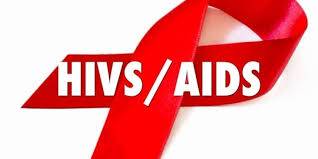Sharp Increase in HIV Cases: Ghana Records Over 34,000 New Infections in 2024
In a concerning development, Ghana has reported over 34,000 new HIV infections within the first nine months of 2024, sparking renewed attention to public health measures across the country. This surge in cases has alarmed health authorities, prompting calls for more robust public education and proactive testing initiatives to curb the spread of the virus.
The Ghana Health Service (GHS) has highlighted several factors contributing to this rise in HIV cases. A combination of insufficient health education, stigma surrounding HIV, and limited access to testing facilities in rural areas has exacerbated the issue. Furthermore, younger populations are at heightened risk, with inadequate knowledge about HIV transmission and prevention leading to risky behaviors that increase vulnerability.
Health officials emphasize the critical need for public education campaigns that address these issues head-on. Increasing awareness about HIV transmission methods, preventive measures, and the importance of regular testing can help people make informed choices. Misconceptions about HIV continue to exist, and by promoting accurate information, health authorities hope to break down the stigma associated with the virus.
Testing remains a cornerstone of Ghana's strategy to manage HIV, as early detection is vital for effective treatment and prevention of further transmission. According to GHS, when individuals are aware of their status, they are more likely to take necessary precautions and seek treatment, which can improve their quality of life and reduce transmission risks. To improve accessibility, GHS is working with various partners to establish more testing centers and mobile testing units, especially in remote areas where healthcare services are limited.
The Ghana AIDS Commission (GAC) has also intensified efforts to reach vulnerable communities with targeted campaigns. In collaboration with NGOs and community leaders, GAC aims to dismantle social stigma and improve awareness about the benefits of testing and antiretroviral therapy. By empowering people with knowledge and support, GAC hopes to foster a society where individuals feel safe seeking help and receiving treatment without fear of discrimination.
As the year progresses, Ghanaian health authorities remain vigilant in monitoring the HIV trend, adjusting public health strategies as needed. They continue to urge all Ghanaians to get tested and to engage in safe practices, underscoring that the fight against HIV requires collective effort.



No comments yet
Be the first to share your thoughts!